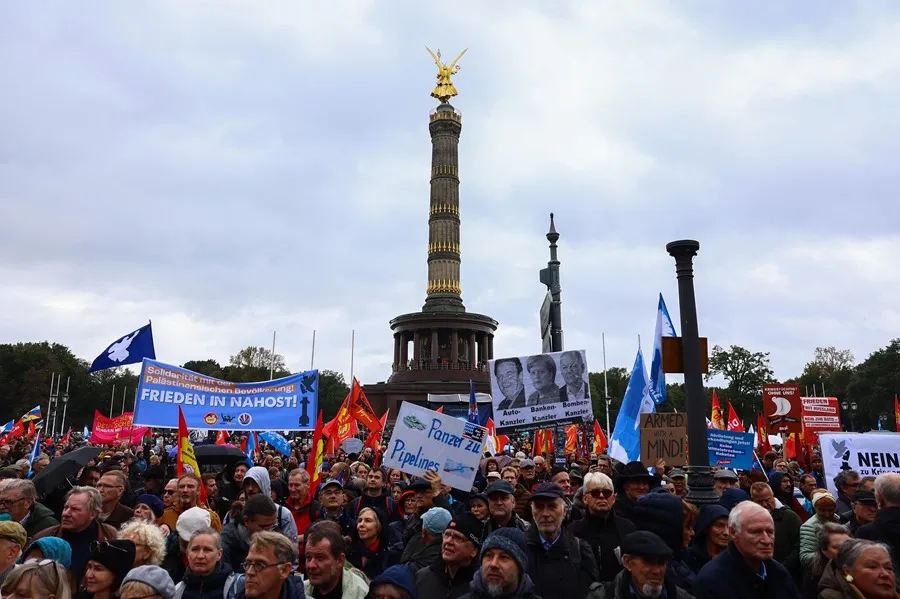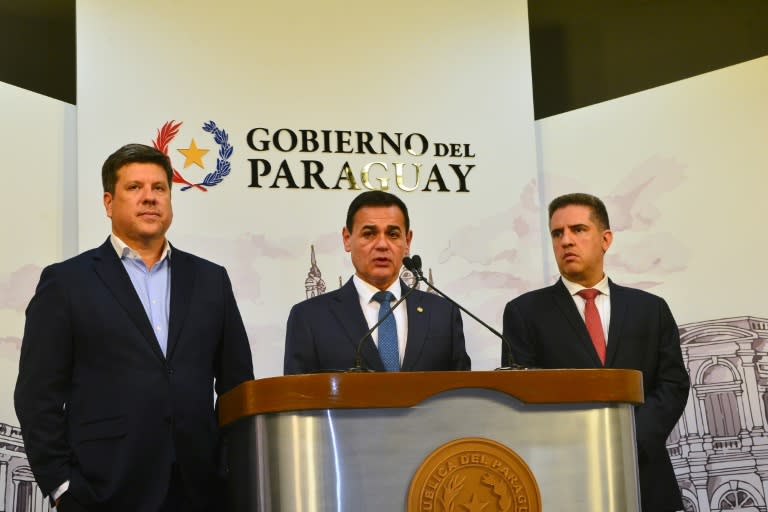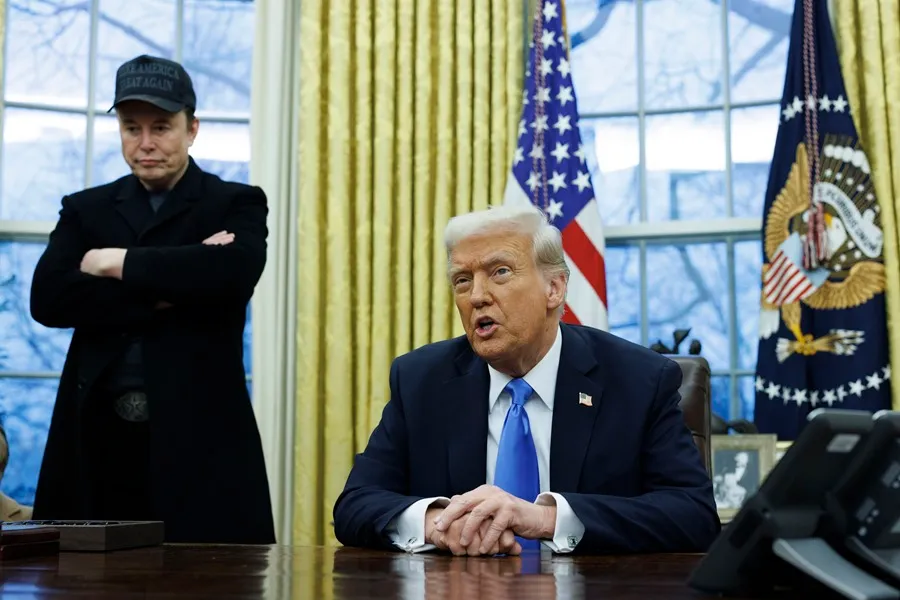International
Germany celebrates 34 years of reunification but with political cracks due to populism

The Germans celebrate 34 years of reunification, a process that ended with the division of the two Germanys, although the recent electoral behavior of the East Germans, where populist parties have become strong, cracks the traditional political scenario of the country.
Behind the festive atmosphere marked by the events of the 34º anniversary of the reunification led by Chancellor Helmut Kohl, a concern weighs the political reality: the booming populism of the far-right Alternative for Germany (AfD) and the leftist Sahra Wagenknecht Alliance (BSW).
The results of these parties in appointments such as the European elections last June or the recent elections of the federal states of Eastern Thuringia, Saxony and Brandenburg, have hit the Central European nation, in which new political divisions between East and West seem to be opening up.
“In 1989, the two Germanys started from different economic and social points and the expectation was that soon there would be an equalization and that would also equalize political points of view,” Martin Schulze Wessel, historian at the University of Munich and expert in Eastern Europe, told EFE.
“At the socio-economic level there is still no equalization, although progress is being made in that direction, but with regard to the vision of politics and political culture, that equalization has not taken place, moreover, there have been new divergences,” he said.
Schulze Wessel alludes to the fact that, after 35 years of the fall of the Berlin Wall, the standard of living in what was the German Democratic Republic (GDR) has increased although the gap between the east and the west is still observed in data such as that the East Germans receive a salary 14% lower than the Westerners, according to data from the Hans Böckler Foundation, a study center specialized in the Teutonic world of work.
This Thursday, in a speech delivered in the city of Schwerin (northeast), Scholz invited to abandon the idea that total equality between east and west in Germany can take place.
“The idea that unification would end completely when the situation in the east would be exactly the same as that in the west, when there is no west that is a single unit, is an idea that does not help us,” Scholz said in the context of the celebration of German Unity Day.
Strong populism in the east
Politically, the east has a different dynamic, as shown by the fact that in the last European elections AfD was – with few exceptions such as Berlin – the most voted force in what constituted the GDR, while in the western territory it swept away the Christian Democratic Union (CDU).
In those elections, the CDU won with 30% of the votes, followed by the AfD, with 15.9%, the Social Democratic Party of Germany (SPD, 13.9%) and The Greens (11.9%).
In the European elections, BSW broke out with 6.7%, a percentage celebrated as a success because that formation was barely a few months old and because, in East Germany, the party of the leftist figure Sahra Wagenknecht managed to be the most voted party, after AfD and the CDU.
According to Daniel Kubiak, a researcher at the Humboldt University of Berlin, told EFE, “we can see that the party system of East Germany differs from the West, because in the west there are still two majority parties (CDU, SPD), which have been joined by the Greens, the FDP and AfD, and it is largely stable.”
“The east is more volatile and people tend to vote for parties located at the ends,” he added.
This, according to Kubiak, is not something unique in Europe, since the vote has also become more volatile in other nations of Europe, such as France, Italy, Poland or Austria, the latter country in which the far-right Freedom Party of Austria (FPÖ) won the legislative elections last Sunday.
The end of the consensus on aid to Ukraine
Among the issues with which AfD and BSW differed in the European elections, but also in the federal states of the east that voted in September, where the far-right formation won in Thuringia, while the Wagenkecht party is emerging as a government partner in Saxony and Brandenburg, is the opposition to military support for Ukraine.
AfD and BSW want Germany to break with the current policy of German Chancellor Olaf Scholz, who has turned his country into the nation in Europe that provides the most military aid to Ukraine.
“The European elections and the elections in the federal states of the east have shown a division and that there are populist parties, the far-right AfD and BSW, that go out of the consensus of the other parties, and there seems to be a rift between east and west,” Schulze Wessel concluded.
International
Paraguay summons Brazilian ambassador over Itaipú espionage scandal

Paraguay summoned the Brazilian ambassador in Asunción on Tuesday to demand “explanations” and called its own representative in Brasília for consultations following Brazil’s acknowledgment of an espionage operation. The Brazilian government, led by President Luiz Inácio Lula da Silva, attributed the operation to the previous administration.
The surveillance effort aimed to uncover Paraguay’s position in now-suspended negotiations with Brazil regarding the pricing of electricity from the binational Itaipú hydroelectric plant, according to reports in the Brazilian press.
The Brazilian government “categorically denied any involvement in the intelligence operation,” stating in a Foreign Ministry communiqué on Monday that the espionage was carried out under former President Jair Bolsonaro’s administration (2019-2023).
“The operation was authorized by the previous government in June 2022 and was annulled by the interim director of the (state intelligence agency) ABIN on March 27, 2023, as soon as the current administration became aware of it,” Brazil’s government asserted.
Paraguay’s Foreign Minister Rubén Ramírez announced that Brazilian Ambassador José Antonio Marcondes de Carvalho was summoned “to provide detailed explanations” regarding the operation. Additionally, Paraguay recalled its diplomatic representative in Brasília “to report on aspects related to the intelligence activity conducted by Brazil regarding Paraguay’s government affairs.”
International
Elon Musk to step down as government advisor, per Trump insiders

President Donald Trump has informed his inner circle that Elon Musk will be stepping down from his role as a government advisor, according to a report by Politico today.
Citing three individuals close to Trump, Politico states that the president is pleased with Musk’s leadership at the Department of Government Efficiency (DOGE), where he has implemented significant budget cuts. However, both have agreed that it is time for Musk to return to his businesses and support Trump from a different position outside the government.
A senior administration official told Politico that Musk will likely maintain an informal advisory role and continue to be an occasional visitor to the White House. Another source warned that anyone thinking Musk will completely disappear from Trump’s circle is “deluding themselves.”
According to the sources, this transition is expected to coincide with the end of Musk’s tenure as a “special government employee,” a temporary status that exempts him from certain ethics and conflict-of-interest regulations. This 130-day period is set to expire in late May or early June.
International
Milei vows to make Argentina so strong that Falkland Islanders “choose” to join

Argentine President Javier Milei reaffirmed his country’s claim over the Falkland Islands (known as the Islas Malvinas in Argentina) and praised the role of the nation’s armed forces during a ceremony marking the “Veterans and Fallen Soldiers of the Malvinas War Day,” commemorating 43 years since the 1982 conflict with the United Kingdom.
Argentina continues to assert sovereignty over the islands, arguing that Britain unlawfully seized them in 1833.
“If sovereignty over the Malvinas is the issue, we have always made it clear that the most important vote is the one cast with one’s feet. We hope that one day, the Malvinas residents will choose to vote with their feet and join us,” Milei stated.
“That is why we aim to become a global power—so much so that they would prefer to be Argentine, making deterrence or persuasion unnecessary. This is why we have embarked on a path of liberation, working to make Argentina the freest country in the world and once again the nation with the highest GDP per capita on the planet,” he added.
-

 International4 days ago
International4 days agoSon of journalist José Rubén Zamora condemns father’s return to prison as “illegal”
-

 International4 days ago
International4 days agoMiyazaki’s style goes viral with AI but at what cost?
-

 Central America3 days ago
Central America3 days agoPanama police clarifies that Interpol alert for Martinelli is still pending
-

 Central America2 days ago
Central America2 days agoU.S. Homeland Security Secretary urges Mexico to strengthen Guatemala border
-

 International2 days ago
International2 days agoTrump urges Putin to reach peace deal
-

 Central America2 days ago
Central America2 days agoPanama grants Martinelli 72-hour extension to travel to Nicaragua
-

 International3 days ago
International3 days agoDeportation flight lands in Venezuela; government denies criminal gang links
-

 International16 hours ago
International16 hours agoParaguay summons Brazilian ambassador over Itaipú espionage scandal
-

 Sports16 hours ago
Sports16 hours agoFilipe Luis debuts as coach in Copa Libertadores with Flamengo
-

 Central America13 hours ago
Central America13 hours agoGuatemalan police officer killed in mob riots over baby kidnapping
-

 International16 hours ago
International16 hours agoMilei vows to make Argentina so strong that Falkland Islanders “choose” to join
-

 International16 hours ago
International16 hours agoElon Musk to step down as government advisor, per Trump insiders
-

 Sports16 hours ago
Sports16 hours agoVenezuela investigates 18 baseball players seeking asylum in Spain
-

 International16 hours ago
International16 hours agoICE agent’s arrest of suspect sparks controversy in Boston
-

 International16 hours ago
International16 hours agoÓscar Arias: Trump’s trade policies are a step backward















